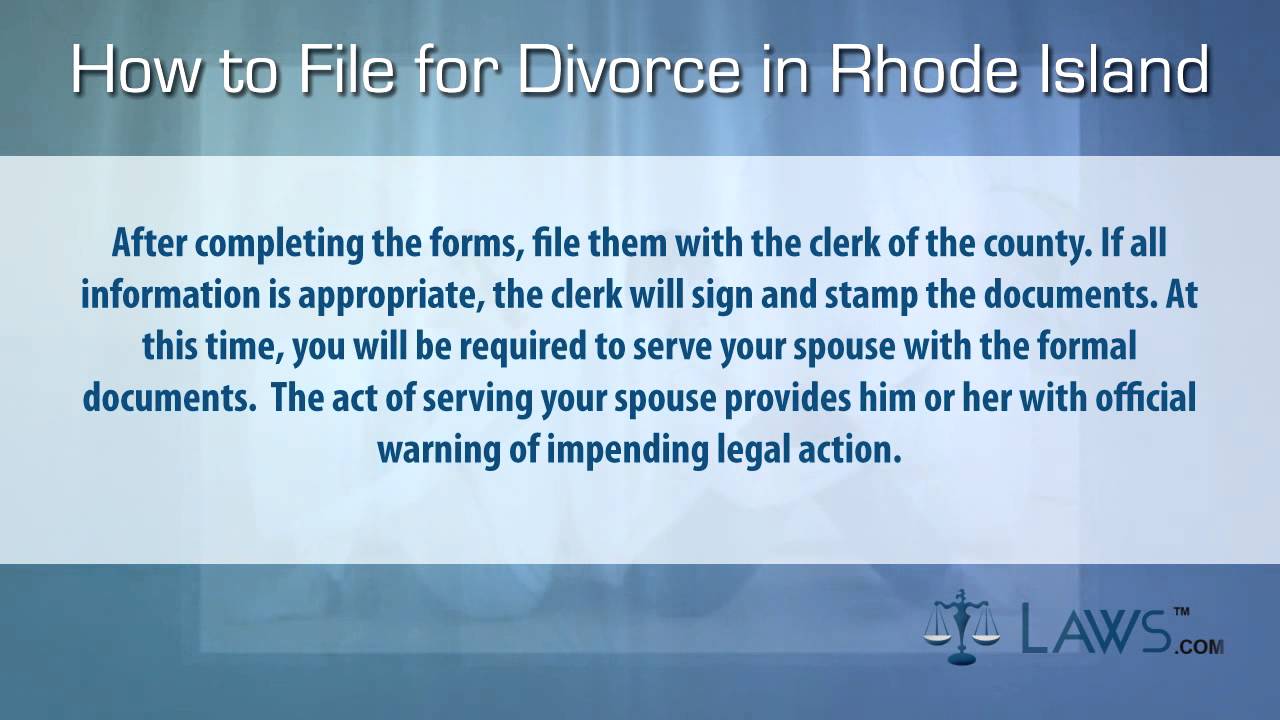Introduction to obtaining a divorce in Rhode Island
When a marriage is no longer sustainable, couples often find themselves facing the difficult decision of pursuing a divorce. In the state of Rhode Island, the process of obtaining a divorce involves several steps and can be complex. This article aims to provide a comprehensive overview of the divorce process in Rhode Island, guiding individuals through each stage and ensuring they are well-informed.
Step 1: Residency requirement for filing a divorce
Before initiating the divorce process in Rhode Island, it is crucial to meet the state’s residency requirement. Either party must have been a resident of Rhode Island for at least one year prior to filing for divorce. The divorce can be filed in either the Family Court or the Superior Court, depending on the specific circumstances.
Step 2: Understanding the grounds for divorce in Rhode Island
Rhode Island recognizes both fault and no-fault grounds for divorce. No-fault divorces are available if the couple has been living separate and apart for at least three years. Alternatively, fault grounds include adultery, extreme cruelty, willful desertion for five years, and more. It is important to consult with an attorney to determine the most appropriate grounds for your specific situation.
Step 3: Filing the complaint for divorce
To initiate the divorce process, the filing party (known as the plaintiff) must draft and file a complaint for divorce with the appropriate court. The complaint should state the grounds for divorce and provide relevant information, such as assets, debts, and child custody if applicable. Filing fees must be paid, although fee waivers can be requested for those with financial difficulties.
Step 4: Serving the divorce complaint to the spouse
After filing the divorce complaint, it is mandatory to serve a copy of the complaint and related documents to the other spouse (known as the defendant). Service can be achieved through various methods, including personal delivery by a sheriff or a process server, certified mail with return receipt, or waiver of service.
Step 5: The spouse’s response to the divorce complaint
Once served with the divorce complaint, the spouse has a limited time to respond. In Rhode Island, they are given 20 days to submit an answer to the complaint. This response should address the allegations made in the complaint and may also include counterclaims if the spouse wishes to contest certain aspects of the divorce.
Step 6: Discovery process and gathering necessary documents
After the initial filing and response, both parties enter the discovery process, where they exchange relevant information and documentation regarding their finances, assets, liabilities, and any other pertinent matters. This process ensures transparency and helps in reaching a fair and equitable settlement. If parties are unable to reach an agreement, an attorney may be necessary to assist with this step.
Step 7: Mediation or alternative dispute resolution options
Rhode Island encourages parties to explore alternative dispute resolution methods before proceeding to trial. Mediation, where a neutral third party helps facilitate negotiations, is a common option. During mediation, couples can work together to create a mutually acceptable settlement agreement. This process can be less adversarial and costly compared to litigation.
Step 8: Preparing for divorce trial, if necessary
If mediation or alternative dispute resolution methods do not lead to a resolution, the case may proceed to trial. Both parties will need to prepare for the trial by gathering evidence, securing witnesses, and building a strong argument to support their position. It is essential to have a skilled attorney who can guide you through this phase and effectively present your case in court.
Step 9: Attending the divorce trial and presenting your case
During the divorce trial, each party will present their evidence, call witnesses if necessary, and make arguments to support their desired outcome. The judge will review the evidence, listen to both sides, and ultimately make a decision on the key issues such as property division, alimony, child custody, and child support. It is crucial to have competent legal representation to ensure your rights are protected and advocated for effectively.
Step 10: Receiving the divorce decree and its implications
After the trial, the judge will issue a divorce decree, which finalizes the divorce and outlines the terms of the settlement or the court’s decision on contested matters. This decree is legally binding, and both parties must adhere to its terms. It is important to review the decree carefully and consult with an attorney to understand its implications and any required actions.
Step 11: Handling post-divorce matters and modifications
Following the divorce, there may be post-divorce matters that need attention. These can include modifying child custody or support arrangements, enforcing the terms of the divorce decree, or addressing other issues that arise after the divorce is finalized. Consulting with an attorney can help navigate these matters and ensure compliance with the legal requirements.
Conclusion: Navigating the divorce process in Rhode Island
Obtaining a divorce in Rhode Island involves navigating a series of steps that encompass residency requirements, understanding grounds for divorce, filing the complaint, serving the spouse, responding to the complaint, discovery, and potential mediation or trial. It is crucial to seek professional legal guidance throughout the process to protect your rights, ensure a fair outcome, and understand the implications of the divorce decree. By following these steps and seeking the necessary assistance, individuals can successfully navigate the divorce process in Rhode Island.





